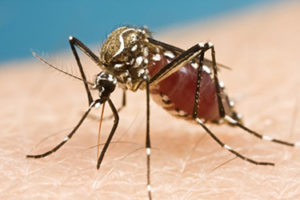Since March 2020, the news has been loaded with stories about COVID-19. It has been a year like no other since the Spanish flu. You may think that all medical research had stopped in order to confront this virus. This may be so in part, but not entirely, as studies of other diseases have continued throughout 2020 and through this year.
In this post, you will learn about the five most impactful medical advancements that have occurred during these COVID-19 times. Let’s take a look.
#1. Eradicating Mosquito-Borne Diseases

Mosquitos are one of the deadliest insects known to humanity. From malaria to dengue, Zika, and yellow fever, mosquito bites are causing millions of deaths every year. However, a groundbreaking discovery led to the introduction of a new mosquito control method that effectively reduces dengue infections by 77 %.
Dengue, which can cause vomiting, bleeding, headaches, body pain, and possible death is spreading at an exponential rate around the world, with around 50 million cases every year. Moreover, Indonesia is reporting 7 million cases of the disease annually. Part of the spread of this mosquito-borne infection is a result of global warming. Furthermore, no vaccine provides a considerable cure to the condition. Similarly, other mosquito-borne diseases, including Zika, are spreading globally and are even making their way into the U.S.
The groundbreaking innovation followed by a 27-month trial in Indonesia led to exciting results where mosquitos infected by a bacteria named Wolbachia were unable to pass dengue on to people. The breakthrough can scale to metropolitan cities worldwide where mosquitos infected by bacteria will be unable to spread virus-borne diseases like Zika and yellow fever.
#2. Breakthroughs in Heart Diseases and Stroke Research

Another groundbreaking achievement is a new study that can change the treatment of a medical condition known as hypertrophic cardiomyopathy, which is a thickening of the heart muscles. The highlights of this study include a minimally invasive procedure to prevent stroke. Moreover, the other interesting aspect of the research is that you don’t need more treatment to improve coronary heart conditions. Instead, you need to look for an interconnected and comprehensive approach to treatment.
The idea was supported by evidence that showed that the medication for controlling diabetes might also improve heart conditions among individuals without diabetes. The research is particularly interesting because it is likely to offer a road map to a future where a comprehensive treatment plan will be recommended to patients to improve overall health and well-being instead of treating a specific condition.
#3. A Better Approach to Gene Therapy
Gene therapy is the next big thing for treating individuals with cancer, genetic disorders, and blood diseases. And this latest approach to gene therapy is going to be a game-changer.
A research team led by UCLA reported the development of a new method of delivering DNA into the stem and immune cells quickly and economically. The current genetic therapies are expensive and can cost up to thousands of dollars for a single treatment. Moreover, current therapies can take months to produce.
However, with this latest approach to gene therapy, it is possible to get quicker and more effective results with only a fraction of the cost.
Moreover, researchers hope this research is an integral step forward in treating several health conditions, including cancer. With this therapy taking a new approach, the treatment plan for cancer that traditionally involved painful procedures, including bone marrow transplant, chemotherapy, and radiation, will now shift to a new form of gene therapy.
Note that this new therapy is still not available for treating patients; however, it will be the future of treatment of several genetic diseases in this decade.
#4. Saving Lives of Mothers
Next on the list of medical advances is the latest research on how to prevent the loss of a mother’s life resulting from uncontrolled blood loss following childbirth. When a woman gives birth and her uterus fails to contract, it can lead to a severe loss of blood that results in an emergency hysterectomy and even death. Postpartum blood-related death results in almost 1/3rd of all childbirth-related death.
The current treatment options include medications (which seldom work) and inserting a balloon that puts pressure on the uterus. This existing treatment comes with associated risks.
However, researchers have figured out a new and improved way to control the situation. The groundbreaking innovation is a vacuum device that aids in facilitating natural contractions following childbirth. The vacuum puts pressure on the leaking blood vessels, which in turn helps control bleeding. The trial results revealed that this vacuum device could control bleeding in around three minutes and successfully treated around 94% of the participants.
#5. Changing Paradigm to Alzheimer’s
 Around 2/3rd of the individuals diagnosed with Alzheimer’s disease are women, but as opposed to the longstanding view of the disease, women are less vulnerable to the condition than men. According to this research, the double X chromosome in the female body protects against it. It is due to the presence of the extra X in the chromosome that allows women with Alzheimer’s to live longer and experience less severe symptoms compared to men.
Around 2/3rd of the individuals diagnosed with Alzheimer’s disease are women, but as opposed to the longstanding view of the disease, women are less vulnerable to the condition than men. According to this research, the double X chromosome in the female body protects against it. It is due to the presence of the extra X in the chromosome that allows women with Alzheimer’s to live longer and experience less severe symptoms compared to men.
This groundbreaking discovery is just one of the several similar discoveries that are yet to come, which will help figure out how having a double X chromosome makes female bodies and minds different from a single X and Y chromosome among men.
Summary
Medical research may have slowed a bit due to the coronavirus, but never halted. Studies have continued regarding research into other medical fields while we live through this pandemic. Additionally, by putting so much time and effort into finding a cure for COVID, new life-saving medical technology may materialize in the fight against SARS related illnesses.
